In the fast-changing and ever-evolving global business environment, embracing the digital age is no longer an option, but a necessary strategy for sustainable success. Digital marketing, a transformative force, stands at the foundation of today’s business strategies, fundamentally changing the dynamics of how companies reach their audiences, promote offers and ultimately achieve success.
The advent of digital marketing marks a paradigm shift away from traditional methods, ushering in a new era of connectivity and engagement. Its significance lies not only in the adoption of online platforms but in the holistic integration of various digital channels to create a strong and cohesive brand presence. This multifaceted approach allows businesses to transcend geographic boundaries and connect with target audiences on a more personal and immediate level.
At its core, digital marketing is about creating meaningful interactions. It includes a diverse range of tools and techniques, from search engine optimization (SEO) that improves online visibility to social media marketing that encourages community engagement. Content marketing, another integral component, allows companies to share valuable information, create thought leadership, and build lasting relationships with their audience.
Crucially, digital marketing provides businesses with a dynamic and measurable framework for analyzing and optimizing their strategies. Unlike traditional methods, where measuring effectiveness can be difficult, digital channels offer real-time analytics. This data-driven approach allows businesses to continually refine their tactics to ensure they remain relevant and resonate with their target audience.
In conclusion, adapting to the digital age is not just a strategic choice; it’s a must for businesses that want to thrive in today’s competitive environment. Digital marketing serves as a cornerstone, a disruptive way for companies to connect, engage and succeed in a world where online presence is synonymous with business vitality. As the business landscape continues to evolve, those who embrace and master digital marketing will find themselves at the forefront of innovation and success.
Pillars of Digital Triumph: Unveiling the Foundations of Modern Marketing Strategies(Digital Marketing).
1.Search Engine Optimization.
Strategic Fusion: Maximizing Business Success through Integrated TraSetting Sail on a Once-in-a-Lifetime Odyssey: Unveiling the Wonders of the World through Tours and Travelditional and Digital Marketing Strategies.
On-page SEO focuses on fine-tuning elements within a website, including optimizing keywords in content, meta tags, and headers. It ensures that search engines understand the content of web pages and their relevance to user queries. Technical SEO involves optimizing a site’s infrastructure, taking into account factors such as site speed, mobile-friendliness and site architecture.
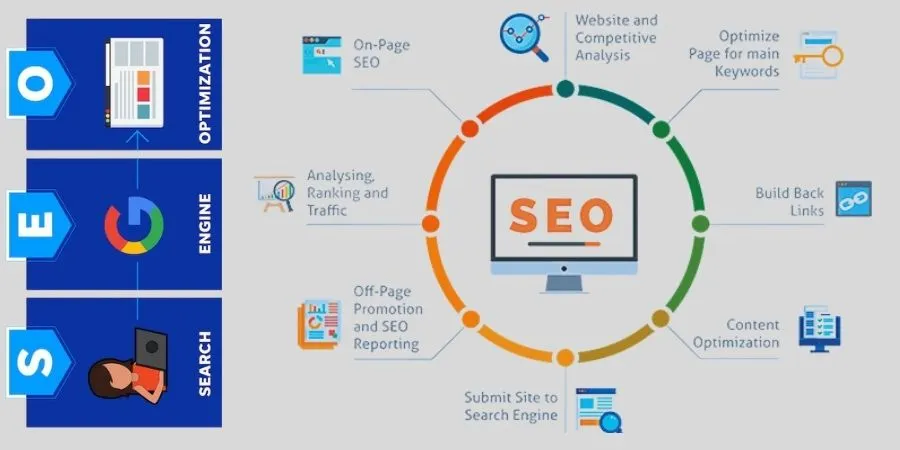
Off-page SEO, on the other hand, involves building a website’s authority and reputation through quality backlinks from reputable sources. Effective link building strategies contribute to a website’s overall credibility in the eyes of search engines.
SEO is dynamic and constantly evolving, influenced by algorithm updates from major search engines like Google. Staying abreast of industry trends, following analytics and adapting strategies are critical to continued success. As an integral part of digital marketing, SEO plays a vital role in increasing targeted organic traffic, increasing brand visibility and ultimately contributing to the online success of businesses in a competitive digital landscape.
2.Mastering the Digital Dialogue: A Comprehensive Exploration of Social Media Marketing Strategies.

Social media marketing (SMM) has emerged as an essential and dynamic part of digital marketing strategies, leveraging the massive reach and interactive nature of social media platforms to promote brands, products and services. It involves creating and sharing content across various social networks to engage target audiences and build brand awareness.
SMM encompasses a diverse range of activities, including content creation, sharing updates, running paid advertising campaigns, and direct audience interaction. Platforms like Facebook, Instagram, Twitter, LinkedIn, and more serve as invaluable channels for building brand identity, connecting with customers, and achieving business goals.
Content creation is a central aspect of SMM where businesses create compelling posts, images, videos and other media to resonate with their audience. Strategic posting plans and targeted ads amplify reach and engagement. Real-time engagement, including responses to comments and messages, is critical to building authentic connections and maintaining a positive brand image.
Analytics plays a key role in evaluating the success of SMM efforts.
Metrics such as engagement, reach and conversion rates provide valuable insights and allow businesses to refine their strategies to achieve optimal results. The evolving landscape of SMM is introducing trends such as collaboration with influencers, video marketing and ephemeral content, demonstrating the adaptability required in this ever-changing domain.
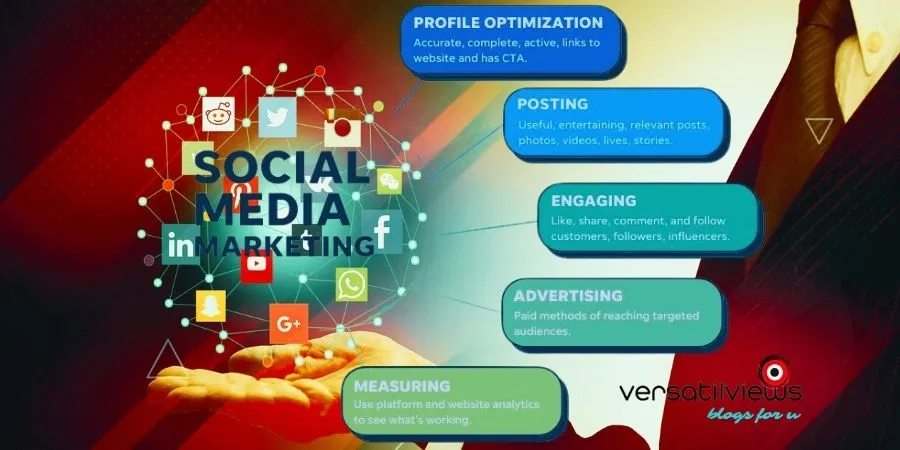
Basically, SMM is not just about marketing; it’s about building relationships, fostering community, and keeping information relevant in the digital conversation. A well-executed social media marketing strategy is integral to building a brand’s online presence, driving customer engagement and ultimately achieving business goals in a competitive digital marketplace.
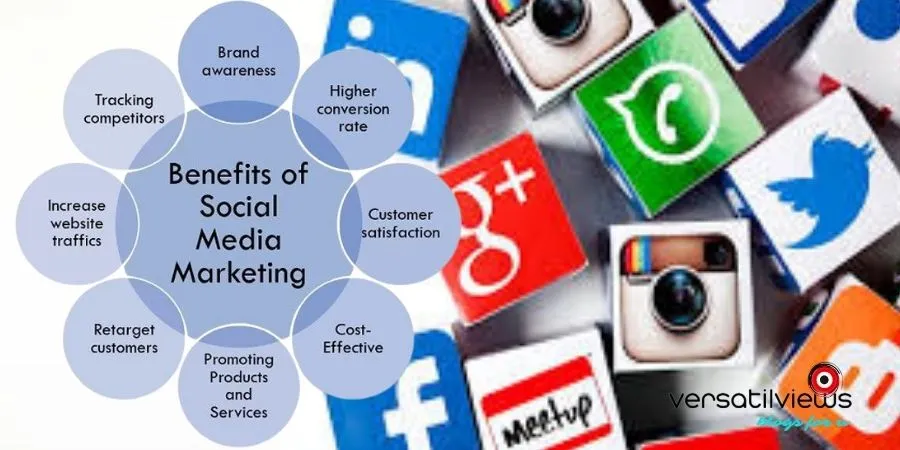
3.Crafting Connections: Unveiling the Art and Impact of Content Marketing Strategies.
Content marketing is a strategic approach that revolves around the creation, distribution and dissemination of valuable and relevant content to attract and engage a target audience. It’s not just about selling products or services; rather, it aims to establish authority, build trust, and foster lasting relationships with audiences.
At its core, content marketing is a versatile tool that takes many forms, including blog posts, articles, videos, infographics, podcasts, and more. The content is tailored to the needs, interests and pain points of the target audience, providing them with meaningful and informative material. This in turn positions the brand as an industry expert and valuable resource.
A successful content marketing strategy involves thoroughly researching the preferences and behaviors of your target audience and creating content that matches their needs and wants. Distributing content across multiple platforms and channels increases its reach and impact. Social media, email marketing and SEO are often integrated into content marketing efforts to maximize visibility.
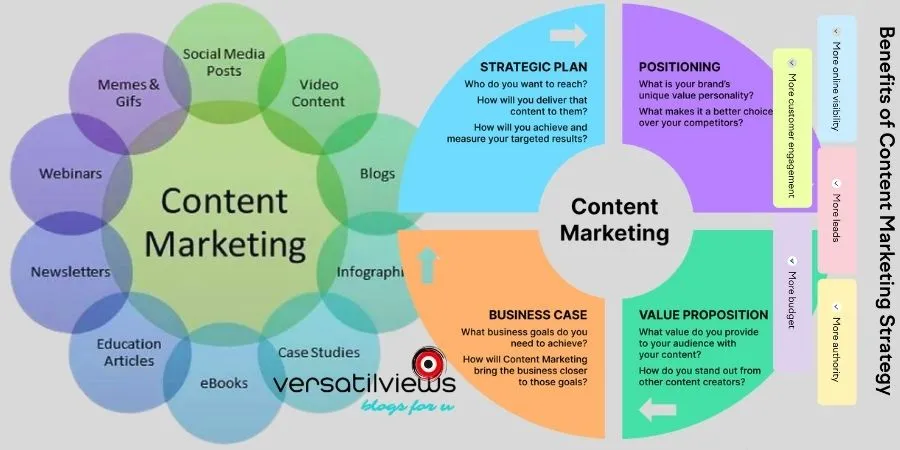
Measurement and analysis are critical parts of content marketing, with metrics such as engagement, click-through rates and conversions helping marketers measure the effectiveness of their content. The ever-evolving landscape of content marketing includes new trends such as interactive content, user-generated content and personalized experiences, underscoring its adaptability in the digital era.
Essentially, content marketing goes beyond transactional relationships, it aims to educate, entertain and inspire audiences, creating a community around a brand. As consumers increasingly seek valuable experiences online, content marketing is an indispensable strategy for businesses seeking to meaningfully connect with their target audience.
4.Nurturing Connections: The Dynamics and Impact of Email Marketing Strategies.
Email marketing remains a staple in digital communications, offering a direct and personalized approach to connecting with your audience. It involves sending targeted messages to a group of individuals to promote products, services, or build relationships.
The power of email marketing lies in its versatility, serving a variety of purposes such as nurturing leads, delivering personalized content, and driving conversions. Effective email campaigns include thoughtful segmentation that ensures messages are tailored to the specific interests and behaviors of different audience segments.
Key components of successful email marketing include compelling subject lines, engaging content, and clear calls to action. Automation tools allow businesses to streamline the process by sending automated messages triggered by user actions or specific timelines. This not only saves time but also ensures timely and relevant communication.
Personalization is a cornerstone of email marketing, allowing businesses to address recipients by name, recommend products based on past interactions, and create a sense of individualized attention. In addition to promotional emails, newsletters and informative content help build brand loyalty and authority.
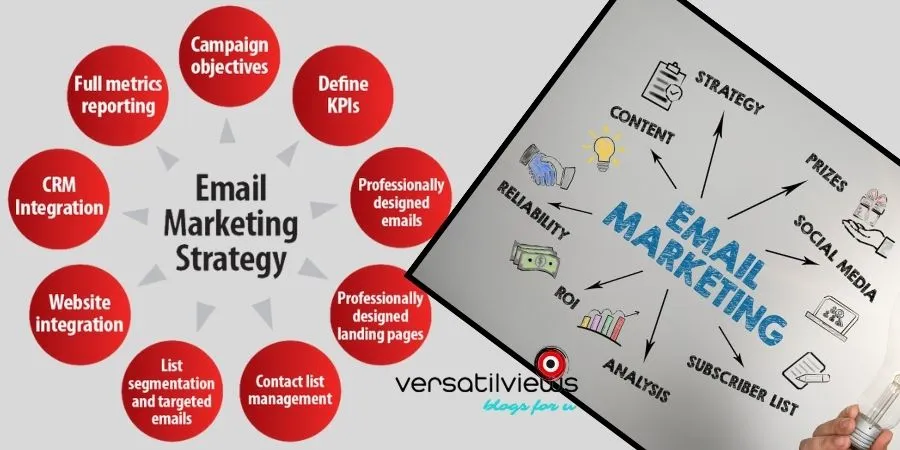
Metrics such as open rates, click-through rates, and conversion rates provide valuable insight into the performance of email campaigns. Continuous optimization based on these metrics ensures that email marketing remains a dynamic and effective channel for businesses looking to engage their audience, foster relationships and drive desired actions.
5.Precision in Action: Unveiling the Dynamics and Impact of Pay-Per-Click (PPC) Advertising.
Pay-Per-Click (PPC) advertising is a highly targeted and measurable form of digital marketing where advertisers pay a fee for each click on their ad. This model allows businesses to place ads on search engines or social media platforms, ensuring that they only apply when a user takes a specific action.
PPC is based on keyword targeting. Advertisers offer relevant keywords for their products or services, and when users type those keywords into search engines, ads appear. This approach ensures that ads are shown to users who are actively searching for related information, increasing the likelihood of conversion.
Platforms like Google Ads and social media channels like Facebook and LinkedIn offer robust PPC advertising solutions. Advertisers can set daily budgets, target specific demographics and track the performance of their campaigns in real time. Ad extensions and compelling ad copy add to the effectiveness of PPC campaigns and encourage users to click and engage.
PPC advertising is highly measurable and provides detailed information on the performance of each campaign. Metrics such as click-through rate (CTR), conversion rate and return on advertising investment (ROAS) help advertisers evaluate the success of their campaigns and make data-driven optimization decisions.

In an increasingly competitive digital environment, PPC advertising offers businesses a cost-effective way to reach target audiences, generate leads and increase conversions. Its immediate and quantifiable impact makes it an indispensable tool in the digital marketing toolbox.
6.Decoding Success: The Strategic Power of Analytics and Data-Driven Decision Making in Digital Marketing.
Analytics and Data-Driven Decision Making represent the backbone of modern digital marketing strategies, empowering businesses to harness valuable insights from data for informed and strategic choices. In the dynamic online landscape, the ability to collect, analyze, and interpret data is crucial for optimizing marketing efforts and achieving tangible results.
At its core, analytics involves the systematic examination of data generated by various digital channels. Web analytics, social media analytics, and email marketing analytics, among others, offer a comprehensive view of user interactions, behaviors, and preferences. The data collected allows businesses to understand their audience better, track the performance of campaigns, and identify areas for improvement.
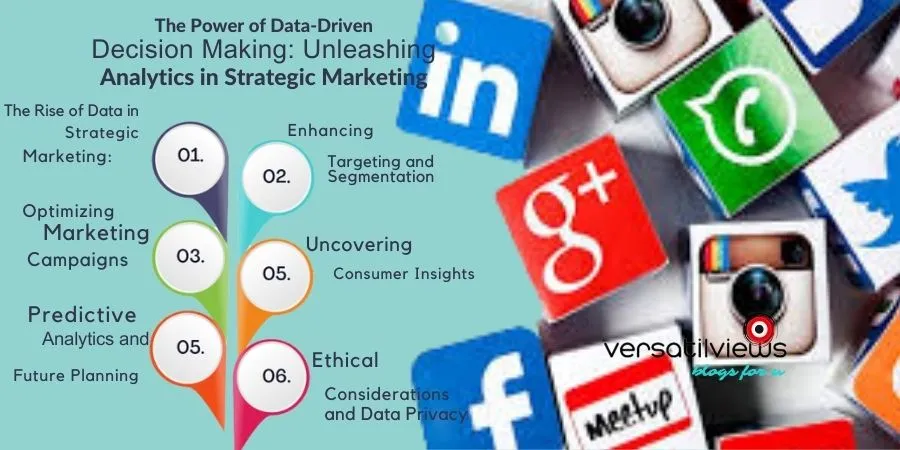
Data-driven decision making integrates this wealth of information into the decision-making process. Rather than relying on intuition alone, businesses leverage quantitative insights to formulate and refine strategies. This approach ensures that marketing efforts are aligned with actual audience needs and preferences, enhancing the likelihood of success.
Tools such as Google Analytics, social media analytics platforms, and customer relationship management (CRM) systems play a pivotal role in this process. Metrics like conversion rates, engagement metrics, and customer acquisition costs enable businesses to evaluate the effectiveness of their campaigns and allocate resources strategically.
In the competitive digital landscape, analytics and data-driven decision making aren’t just advantageous; they are imperative for sustained success. Businesses that prioritize a data-centric approach position themselves to adapt to market changes, optimize their marketing strategies, and ultimately stay ahead in the ever-evolving digital arena.
Navigating the Digital Horizon: Challenges and Opportunities in Contemporary Marketing.
Moving in the digital marketing landscape presents both challenges and opportunities for businesses. One of the main challenges is the rapid development of algorithms and technology, which requires traders to remain agile and constantly adapt strategies. The sheer volume of data can be overwhelming, so effective data management and analysis are key. Balancing the need for personalization with privacy concerns presents another challenge in an era of heightened data sensitivity.
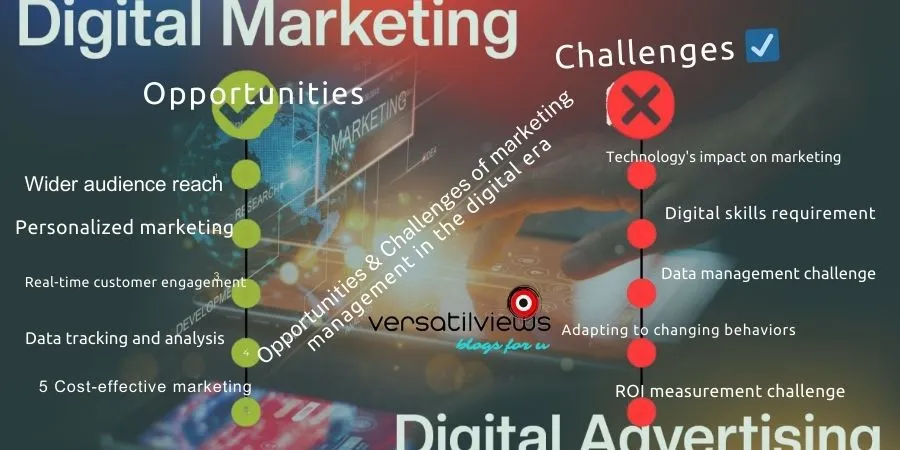
However, within these challenges lie rich opportunities. The immense reach of digital platforms allows businesses to connect with global audiences and overcome traditional geographic limitations. Social media provides a space for authentic engagement and allows brands to build meaningful relationships with their audiences.
Advanced analytics tools offer unprecedented insights and enable data-driven decision making. Embracing innovation, following trends and fostering a customer-centric approach turn these challenges into opportunities for businesses to thrive in a dynamic digital environment.
Conclusion.
In the fast-paced digital era, businesses must realize that mastering digital marketing is not just a strategic choice, but a fundamental necessity for success in the competitive environment. Digital marketing serves as a versatile and indispensable tool that offers businesses the means to increase their online visibility and cultivate meaningful relationships with their customer base.
To excel in this dynamic environment, businesses must prioritize agility and adapt quickly to the evolving digital landscape.
Embracing innovation becomes essential as staying ahead requires integrating cutting-edge technologies and new strategies. Understanding the nuances of each digital channel—from social media and content marketing to SEO and email campaigns—is essential to creating a holistic and effective marketing strategy.

By embracing and mastering digital marketing, businesses are positioning themselves for sustainable growth in the online realm. The ability to navigate the complexities of digital channels, along with a commitment to agility and innovation, ensures that businesses not only survive but thrive in an ever-evolving digital marketplace where success depends on a comprehensive and progressive approach.
“In the vast expanse of marketing choices, the best solution mirrors the essence of your firm and the whispers of your budget. For giants with substantial coffers, the symphony lies in the realm of digital marketing. Yet, for the small, aspiring voices weaving dreams, the sweet melody emerges from a converged digital marketing strategy. In the dance of success, let your steps align with the rhythm that suits your business’s heartbeat and budget’s tune.”
Prasanta Padhi from Versatilviews and DreamPlace
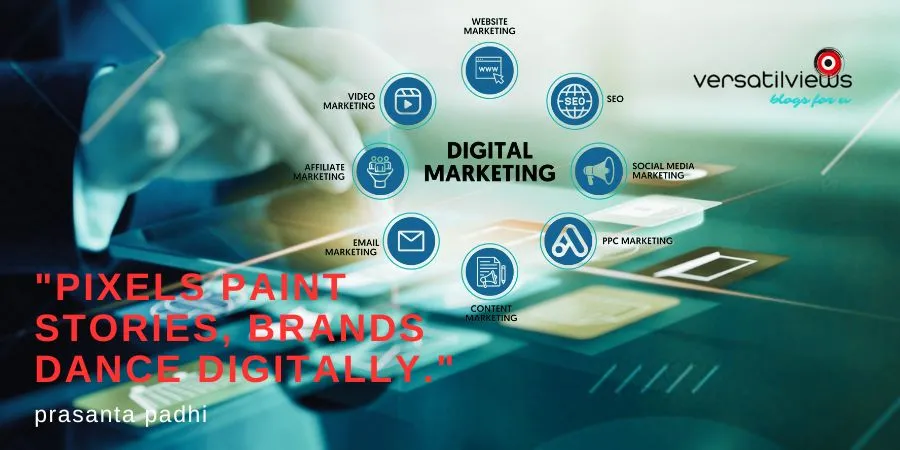
https://www.instagram.com/asiapsiholog_family/
I do not even know how I ended up here but I thought this post was great I dont know who you are but definitely youre going to a famous blogger if you arent already Cheers